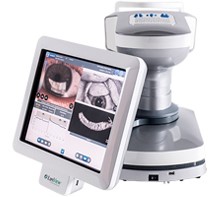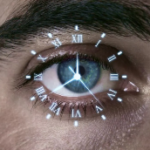LipiView® and LipiFlow® Dry Eye Diagnosis & Treatment
For many years, the term “Dry Eye” has been applied to a variety of uncomfortable eye surface issues, such as discomfort, redness, tearing, gritty or burning sensations and blurry vision. Dry eye disease can be caused by poor tear secretion or excessive evaporation of tears or both. Of the two, evaporative dry eye disease due to meibomian gland dysfunction (MGD) and excessive ocular exposure accounts for the bulk of patient symptoms.
MGD occurs when the meibomian glands of the eyelids do not secrete the lipids or oils needed to protect and maintain a healthy tear film. Without the lipid component, the aqueous component of the tear film evaporates rapidly. While MGD is chronic and progressive, new treatment modalities can effectively treat the primary cause of the disorder.
Normal lid function and blinking is a pre-requisite for normal secretion of meibomian lipids. Poor lid function can exacerbate evaporative eye disease. Normal lid function can be unconsciously interrupted during prolonged viewing of computer monitors and handheld digital devices. Contact lens use, systemic conditions such as rosacea, androgen deficiency, menopause and Sjӧgrens syndrome and medications such as antihistamines, retinoids, certain types of glaucoma medications, antidepressants and postmenopausal hormone therapy can also exacer bate MGD.
bate MGD.
Diagnosis
While more prevalent in older adults, evaporative dry eye disease can occur at any age. At Ophthalmic Consultants of the Capital Region, we are diagnosing evaporative dry eye in young adults and children, possibly because of the common use of smart phones and computers. At Ophthalmic Consultants, the Lipiview imaging interferometer has allowed the rapid assessment of blink function, and thickness and distribution of the meibomian lipids over the corneal surface with each blink.
Treatment
Any treatment of evaporative eye disease would necessarily require treatment of the root cause of the disorder. Lid function disorders are typically treated surgically. Under secretion of meibomian gland lipids is currently best treated with Lipiflow, the only FDA approved device for the treatment of evaporative dry eye disease and MGD. It accomplishes this by a method of programmed thermo-pulsation of the meibomian glands that evacuates the gland ducts of any blockages and in turn restores glandular function.
At Ophthalmic Consultants of the Capital Region, Lipiflow has become the preferred method of choice for treating MGD. LipiFlow® is a quick, in-office treatment. LipiFlow typically does not require any downtime, so most patients are able to return to work or other daily activities immediately after the procedure.
Next Steps
If you think you suffer from dry eye, please contact and arrange for a dry eye analysis appointment. Call us to schedule an appointment with one of our specialists, ophthalmologists, or optometrists. It’s important to take care of your vision.
Get in touch with us today at our nearest location to you.

